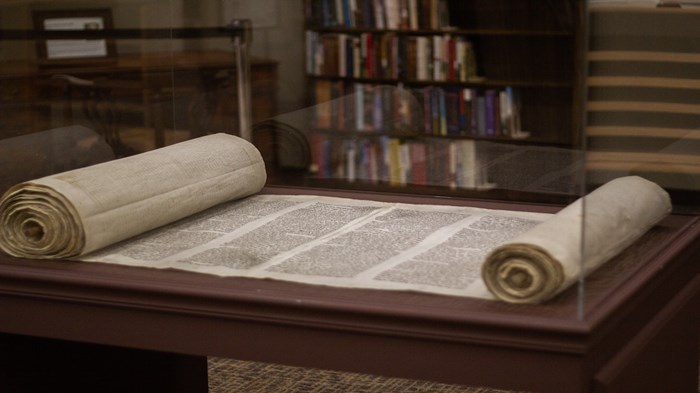Non-Stop Goldingay

It is not my “only” favorite song in the hit “Hamilton,” but Non-Stop is one of my favorites:
Why do you write like you’re running out of time?
Write day and night like you’re running out of time?
Ev’ry day you fight, like you’re running out of time”.
Such were the words about Alexander Hamilton sung (if I recall accurately) by his wife Eliza. It was fun, it was true to the perception we were having about Hamilton himself. He was running out of time and was writing up a storm.
So also John Goldingay who seems to be putting his career of teaching into his newest books, and the newest of which that I now have in front of me, thanks to the good folks at IVP, is called The Theology of Jeremiah: The Book, The Man, The Message.
When I was at Tyndale House in the second year of my PhD I studied with Pete Diamond who was himself doing a PhD on Jeremiah. in one of our conversations I mentioned the “book” of Jeremiah and he paused and said something like “a book of sorts.” Goldingay calls it “the Jeremiah scroll.”
If you sit down and read Jeremiah today and try to read long portions at once it’s not like other prophets or books of the Bible. John Goldingay, in fact, says it’s like a “collection of blogposts.” (Thank you John for recognizing the genre of blogposts.) I read Goldingay’s own transation of Jeremiah near the end of last year. It’s found in The First Testament. I’ve read it through twice, and have turned recently to reading Robert Alter’s translation of The Prophets (his whole 3500 page translation of the OT has a great price).
I’ve read Goldingay for years because he’s so immersed in the OT that he has learned to think and speak like it – like its authors and ideas and passions and realities. So, I’m looking forward to this little “course” in Jeremiah.
The words of Jeremiah son of Hilkiah, one of the priests at Anathoth in the territory of Benjamin. The word of the LORD came to him in the thirteenth year of the reign of Josiah son of Amon king of Judah, and through the reign of Jehoiakim son of Josiah king of Judah, down to the fifth month of the eleventh year of Zedekiah son of Josiah king of Judah, when the people of Jerusalem went into exile (Jer 1:1-3, NIV).
This is important to me as many seem to have funny ideas about how prophets got their ideas and how we got our Bible from the various writers. Did they have visions? Did they hear things? Or did their brains turn on fire and they talked about those fiery words with visions and hearing?
That word “came to” Jeremiah. Literally, it “happened” to him. Jeremiah uses the same expression when he declares that “Yahweh’s word came to me” (Jer 1:4), and it recurs often in the scroll. In some ways, Yahweh’s word coming to him could be like another human being speaking to him, like hearing a voice behind him. Presumably the words were not literally audible; nobody else would have heard them, otherwise it might have been easier to convince people that it really was God speaking. But Jeremiah knew the message was coming to him. Even when he formulated the words, he didn’t make up the message. It was Yahweh who gave him his overall perspective on Judah, his awareness that Yahweh was going to bring disaster to it because of its rebellion, and his conviction that in due course Yahweh would restore his people. And it was Yahweh who was behind his individual messages.
Author is probably the wrong word here. The beginning and the ending show that Jeremiah probably did not write those words; someone put his scroll of prophecies into a bundle of blogposts. We don’t know who. Probably not long after the destruction, within a few decades.
Goldingay then sketches in outline form the content of reading the scroll of Jeremiah front to back, and then sets up for chp 2’s study of reading Jeremiah backwards.
Join us for a series on Jeremiah.
Jesus Creed is a part of CT's
Blog Forum. Support the work of CT.
Subscribe and get one year free.
The views of the blogger do not necessarily reflect those of Christianity Today.


















